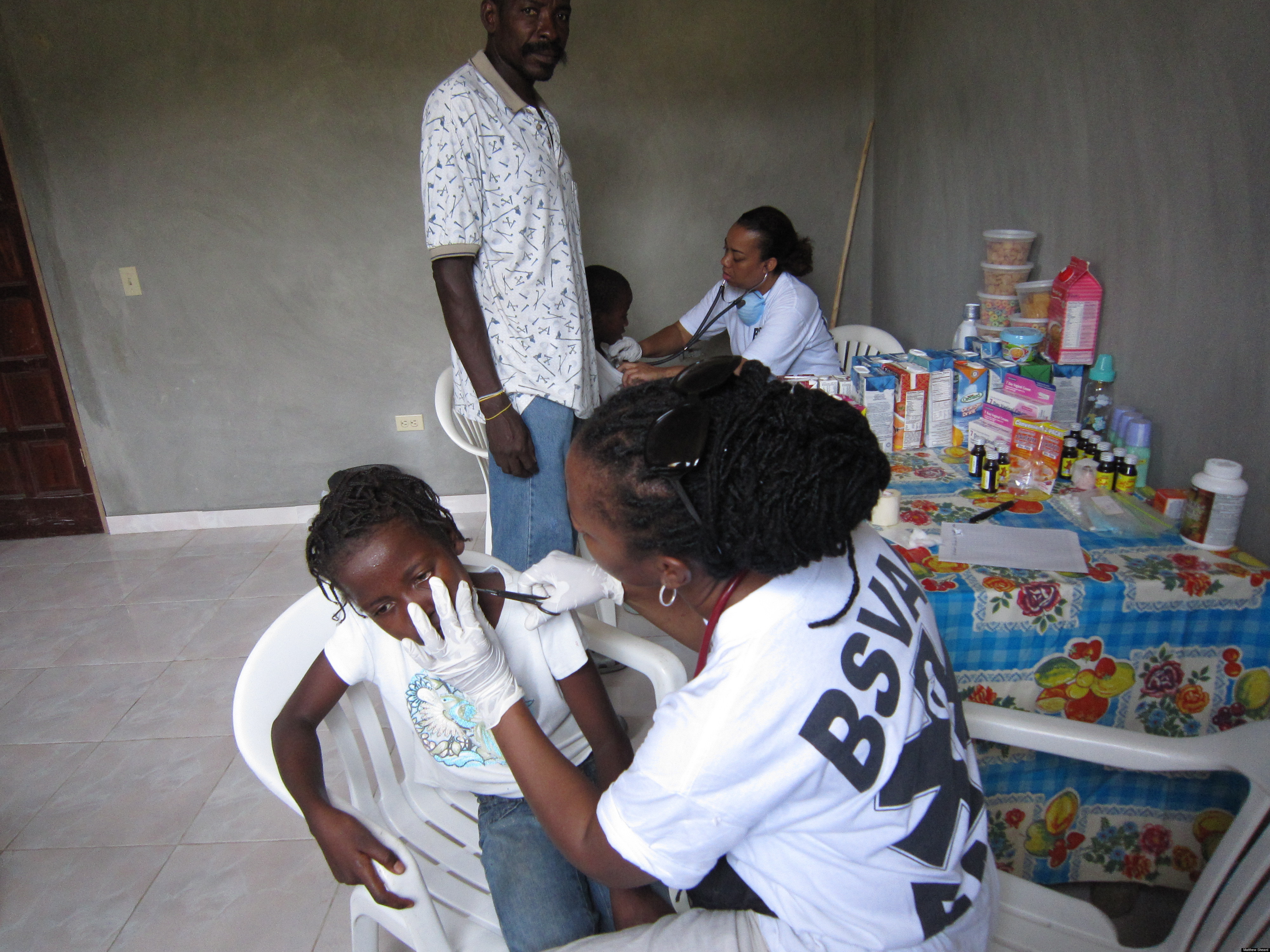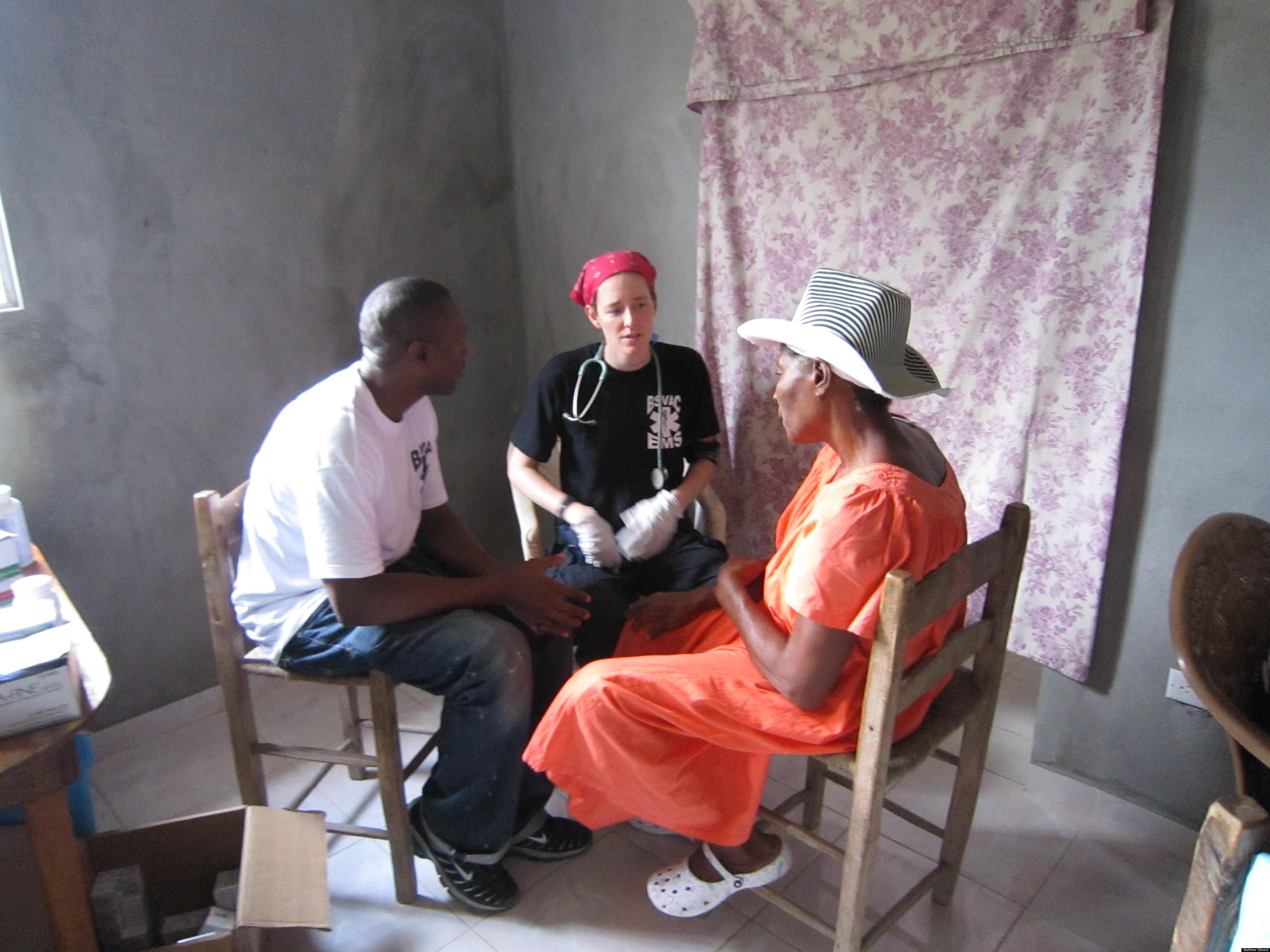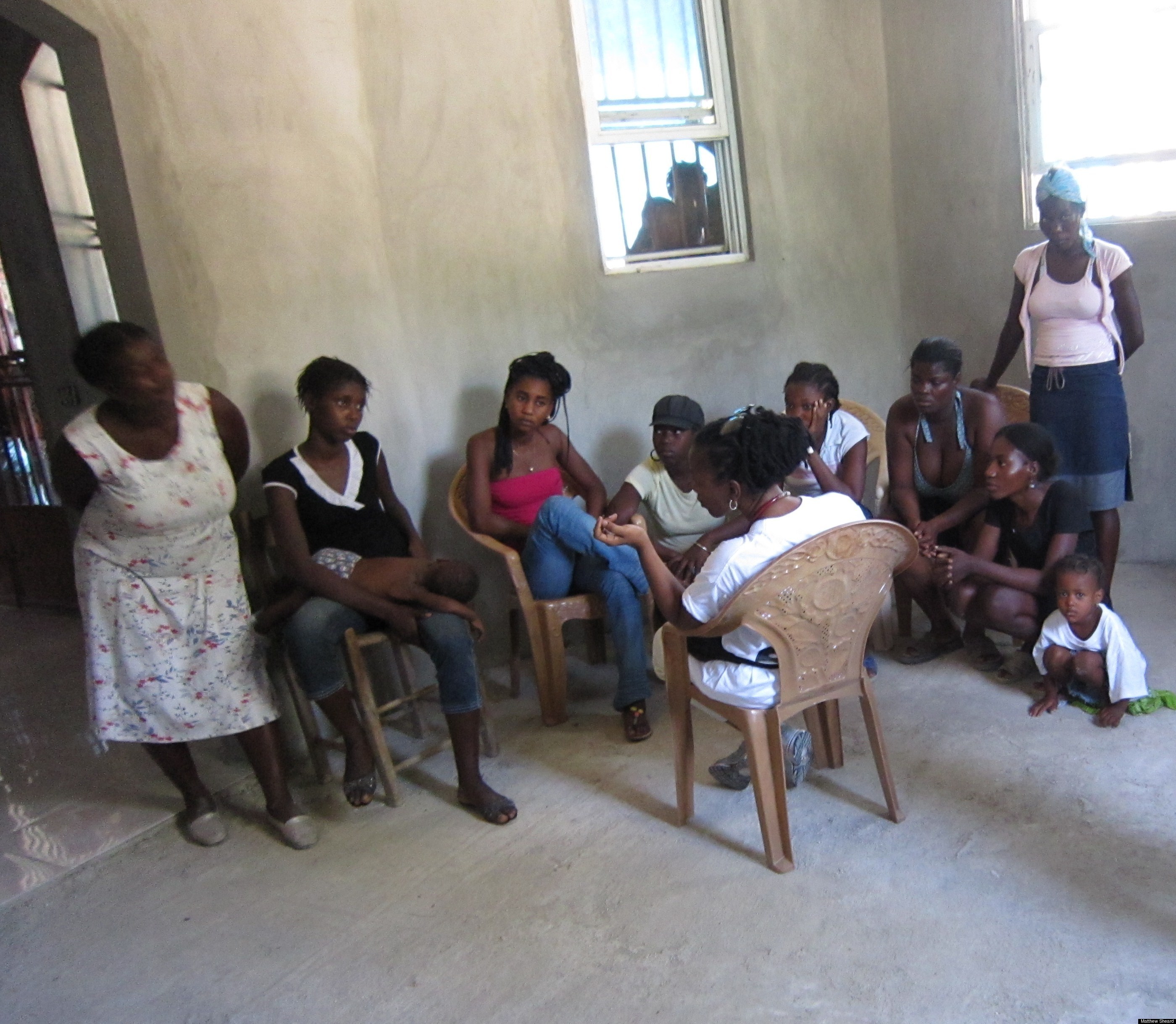

Today we did our first Clinic. We travelled a rocky and uneven road to a small village, Corridor 2. The Clinic was held in the family home of one of the members of our group.
When we arrived there were about 50 people waiting to be seen. More arrived through the day. We unpacked what medications (mostly pain relievers and antibiotics) and wound care we had (gauze, neosporin, tape), and got to work. We split our group up so that the two non-Creole speakers (myself and Paige) were teamed up with two Creole speakers from the group, Apollo and Jeanette.
The first patient I saw was a man, almost 80, complaining of headache and acid indigestion. His blood pressure was high. In the US he would have been sent to the ER. He probably would have been started on blood pressure meds and he definitely would have been told to follow up soon with his primary care physician or at a clinic. We gave him antacid for the indigestion. We gave him Aspirin for the headaches and told him that should help with the hypertension as well. We explained to him that the high blood pressure was a very serious problem that would get worse over time if it wasn't treated, and that as soon as he was able, he needed to go to the Hospital in Port-Au-Prince or one of the Clinics closer by.

Most of the patients we saw were either older people with ailments like high blood pressure or arthritis that should be seeing a doctor regularly but don't have access, or mothers with very young children that had colds and coughs, who, again, should be seeing a doctor regularly but don't have adequate access.
We were able to treat many people despite our lack of resources. The majority of the females we saw had UTIs or yeast infections, which we had treatments for. After treating more than a dozen cases of the same thing, one of our RNs, Rose, an Haitian-American ER Nurse, went to the crowd that was waiting and called for all of the women with vaginal infections. She took them to a separate room and gave a "class" on how to use the medication we were giving, along with tips on basic hygiene and safe sex.

Towards the end of the day my partner Jeanette was getting frustrated. She was angry that there wasn't more that we could do. We were able to treat a lot of people's symptoms but we weren't getting down to the root of their problems, so many people would only get temporary relief from the treatment we were giving. I defended our Clinic by saying what Jean had said to me earlier that day: a lot of the hypertension and pain that people are having is related to stress, so we are helping just by being here and taking the time to talk to people who haven't really had any medical attention since the Earthquake. Almost every patient we saw, at some point, stopped talking about their symptoms and started talking about family and friends that they had lost in the Earthquake, the home they had lost or how afraid they were of where they would live once the summer came.
I understood what Jeanette was saying, and I wish we could have done more; but before getting to Haiti, I didn't know if I would feel useful at all since I am just an EMT, not a doctor or nurse. But I felt, throughout my time there that I had a lot to offer and would encourage everybody I know to volunteer some of their time towards the recovery effort in Haiti in the coming years.